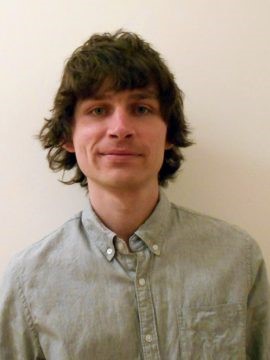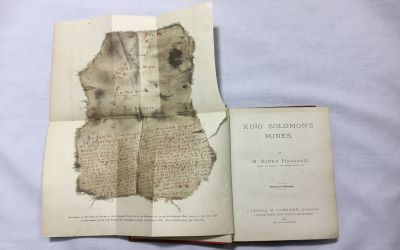VR Webinar: New Romance and the Virtual Return of the Material Obsolete
Thomas Vranken will deliver the 1st installment of our new series, 'Seeing Double: Books, Narratives, and Virtual Realities', on 26 August 2020. REGISTRATIONS CLOSED.
Date and time: Wednesday 26 August 2020, 1:00-2:00PM AEST
Registration: Closed
Abstract: Before the nineteenth century, books in Britain were intensely human objects. For more than three hundred years, making a book involved human beings forging, setting, and inking type; straining on levers to squeeze that type onto paper; and making individual sheets of that paper by hand, out of the clothing people had worn on an everyday basis in the closest possible proximity to their bodies. Over the course of the nineteenth century, however, the book-making professions automated each of the previously manual processes by which books came into being, and the primary component of paper shifted from rags to wood-pulp. As a result, the book as affective, signifying, object was radically reconfigured. While William Morris’ artisan repudiation of modern printing at the end of the nineteenth century is well known, this talk turns to examine a concomitant yet, I would suggest, theoretically richer resistance to popular industrial publishing from within. More specifically, I argue that early editions of novels such as Treasure Island, King Solomon’s Mines, and The Lost World – three cornerstones of a fin-de-siècle literary movement Michael Saler terms the “New Romance” – work to ameliorate the rupture of industrialisation. They do so, I suggest, by resurrecting material elements of the pre-industrial book in virtual form, through “facsimiles” of fictional pre-modern maps and other complex visual simulacra that revive a sense of human intimacy within the otherwise-alien landscapes of the modern book and modern literary production.

Speaker: Dr Thomas Vranken is a Killam Postdoctoral Research Fellow at the University of British Columbia, where his research explores nineteenth-century literature’s relationship with automata and automation more broadly. His study of nineteenth-century periodical culture – Literary Experiments in Magazine Publishing: Beyond Serialisation – was published earlier this year by Routledge. He completed his PhD at the University of Melbourne.
